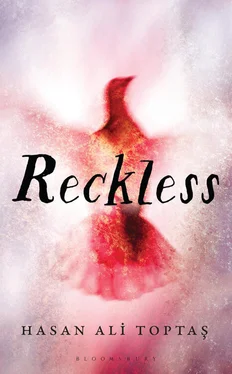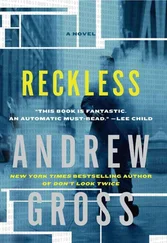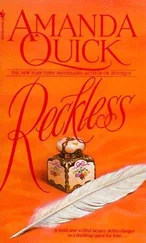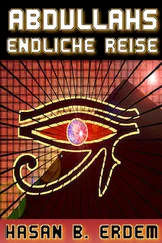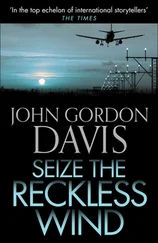‘Understood,’ said Ziya.
And so began their ordeal at the border.
At sunset every evening, they went out to the barbed wire and until dawn, they guarded the border, together with the lice crawling over their bodies. There was more to it than just lying in their trench, training their eyes on the border. They were forever getting up and slinging their rifles over their shoulders, and going off to patrol the part of the border for which they were responsible. They did this to keep a close eye on the places that were beyond their field of vision and also, as time went on, to stay awake. They would walk down the dirt track that ran alongside the barbed wire, looking both to their left and their right, and while they walked they would whisper to each other in half sentences, careful to make as little noise as they could. And when they did so, their voices seemed to bring a little light to the dry grass, and the barbed wire, and the dirt track, and the minefield, and the night itself. But it was not enough to go out on these patrols all night. Every ten, fifteen minutes, they cupped their hands or leaned forward and hollered into the darkness: ‘Whoooooop!’ And then the same call would come back to them from the next station along: ‘Whooooop!’ And then the next station along would answer this cry, and on it would go, from station to station, echoing in the night, all along the border. It would start at the station on the shores of the Mediterranean, carrying with it the blue scent of salt, and travel the full length of the barbed-wire fence, through Hatay, and then Gaziantep, and then Suruç, and Akçakale and Viranşehir. Moving on to Kızıltepe, it would echo for a time in Mardin, and from there it would travel the length of the Iraqi border, and the Iranian border, and the border with the USSR, station by station, until at last it reached the Black Sea.
It wasn’t a military regulation, whooping like that. Quite the opposite. It was entirely irregular. But it was better known than any regulation in the book. And no irregularity was more strictly observed than this one. To draw out those o’s — to whoop and listen to it pierce the night — it was a way of nudging the people in the next station, and keeping them awake; it was to say, fear not, my friends, I’m just over here next to you, and as you’ve just heard, I’m awake. And at the same time, should a smuggler or some such be approaching the border, whooping was a way of saying, listen, brother, don’t risk your life and mine by coming any closer. It might be masquerading as a challenge, but underneath the show of force was a softness, and a silent plea. And sometimes it was a way of letting out a long and mournful sigh of frustration, or a rough, gruff curse against the conditions in which they were living, and the fate that had brought them to this place. But most important, whooping was a way for the caller to cast a veil over the fear he had buried inside him, so that no one else could see it. When it was Osman of Selçuk’s turn to call out, he was never satisfied with just one whoop, of course. Shaking his fist at the night, he would cry out, ‘Fuck off, you fucking village! Fuck off!’
As these calls went up along the border, there was sometimes — every four or five days — a faint call from across it. According to some, these came from old soldiers who had no longer been able to bear the conditions and escaped across the border, there to marry and settle down. But others said, nonsense, those aren’t old soldiers, they’re those trickster smugglers, heading towards the border, and after calling out like that they would turn back, no doubt; having seen that it was impossible to cross over at this point, they would vanish into the night. While others said that it was nothing more than their own calls echoing in the depths of Syria. The terrain was so flat around here that it would, no doubt, take four or five days for a call to bounce back, and that was also why it sounded so exhausted, so much like a low moan. Whereas Veysel Hoca, who had worked as an imam in a village called Cıkınağılköy out in the sticks near Şereflikoçhisar, saw no merit in any of these theories; in his view, the souls of the soldiers who’d fallen in skirmishes over the years were still here, and when they heard the voices of those still in life, they couldn’t restrain themselves, and that was why, from time to time, they whooped from the next world. But no one, not even Veysel Hoca, could know if there was any truth in any of these theories, of course, so whenever a faint little call came floating out to them from the depths of Syria, they would peer back into those dark depths with suspicion.
On his nineteenth day at the border, Ziya heard his third call floating in from Syria. It was Hayrullah of Denizli District, Adana, standing next to him that night; several hours in, they dipped into their parka pockets and took out the dry bread they’d brought with them, and after they had finished it, they went out on patrol, each in their own direction. The air had cooled somewhat, so Ziya had pulled his cap down over his ears, and he was treading softly down the dirt track that quivered before him like a piece of white gauze. All he could see on the Turkish side was a darkness so thick it almost pressed against his face; on the Syrian side, on a gentle hill some seven or eight kilometres away, there were the lights of a small village. And so it was while Ziya was gazing over at those lights that he heard what sounded like a soft moan, rising from the darkness beyond the railroad. ‘Whooooop!’ And with that, Ziya turned on his heels, to race back to the trench. And there, rushing in from the other side, holding his rifle crossways, was Hayrullah, and even though his face was half-obscured by darkness, you could see that he was shaking, quaking; throwing himself into the trench like some sort of sack, and struggling to catch his breath, he gasped, ‘Did you hear it?’
‘I heard it,’ Ziya whispered.
They swung their rifles forward, and now it was their barrels looking out like two eyes over the dark minefield; with bated breath, they put their fingers on their triggers. Then suddenly they could see a tangled flock of shadows landing on the railroad, until, one by one, they moved into the minefield, rising and falling, crackling the dry grass beneath their feet. And then Hayrullah pressed the trigger, and then Ziya did, too: hearing gunfire, a few of the shadows turned around, whinnying in pain as they went. There was then a violent scuffle, as several shadows broke away from the flock; a few of them shot back at the trench: one shadow with a great load on its back lost its balance and fell on to its knees, but at the very moment as it pulled itself back up to the level of the asphalt road, it vanished. And with a speed that seemed to verge on the impossible, the shadows coming up behind it vanished, too. Hayrullah and Ziya fired a few more shots in their direction, and into the rustling grass, and then, trembling with fear and excitement, they waited. And as they did so, the night slowly expanded; as it lapped against the old border, it grew thicker, too. Seeing that the danger was over, Hayrullah muttered, ‘We got off lightly this time, thank God,’ but his eyes were still fixed on the border. ‘Did you see them? Those were bales of tea on those horses’ backs, and there were seven or eight people, at least.’
‘So we’ve fended off a plot to bring down the national economy — is that what you’re saying?’ asked Ziya in a mocking voice.
Hayrullah said nothing, but he lifted up his head, just a little. His eyes were still on the rustling grass and the railroad.
And for a time Ziya fell silent. ‘Dear God,’ he said to himself. ‘I hope none of those shadows were hit. Dear God, I hope not. I hope none of them were hit. Dear God!’
Читать дальше
